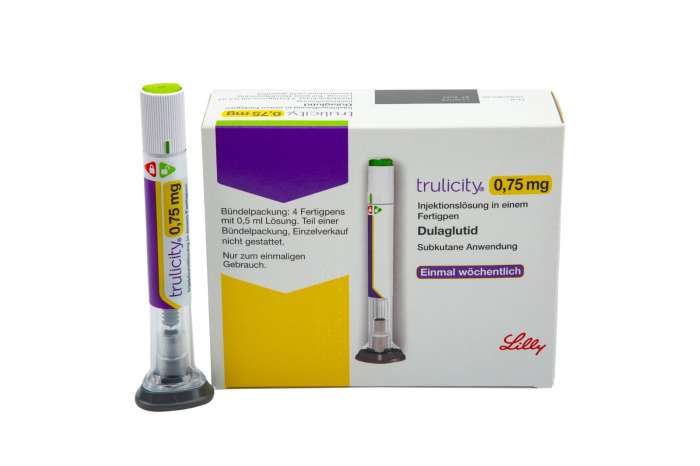
Trulicity Side Effects: What Patients Should Know Before Starting sets the stage for this informative discussion, offering readers insights into the potential impacts of this medication with a focus on patient awareness and well-being.
The following paragraphs will delve deeper into the common side effects, rare but serious side effects, interactions and precautions, and long-term considerations related to Trulicity use.
Introduction to Trulicity
Trulicity is a prescription medication used in the treatment of type 2 diabetes. It belongs to a class of drugs called GLP-1 receptor agonists, which work by mimicking the effects of a hormone called glucagon-like peptide-1 (GLP-1) in the body.
How Trulicity Works
When Trulicity is injected, it helps to regulate blood sugar levels by stimulating the release of insulin from the pancreas and reducing the production of glucose in the liver. This helps to lower blood sugar levels and improve glycemic control in patients with type 2 diabetes.
Importance of Understanding Side Effects
Before starting Trulicity, it is crucial for patients to be aware of the potential side effects that may occur. Understanding these side effects can help individuals make informed decisions about their treatment and be prepared to manage any adverse reactions that may arise.
Common Side Effects of Trulicity

When taking Trulicity, patients may experience some common side effects. It’s important to be aware of these potential effects and how to manage them.
Nausea and Vomiting
One of the most common side effects of Trulicity is nausea, which may sometimes lead to vomiting. This side effect usually occurs when starting the medication and tends to improve over time.
Patients can try taking Trulicity with food to help reduce the likelihood of experiencing nausea. Drinking plenty of water and getting some rest can also help alleviate these symptoms.
Diarrhea
Another common side effect is diarrhea, which can be bothersome for some patients. It’s essential to stay hydrated and consume foods that are gentle on the stomach while taking Trulicity.
Increasing fiber intake gradually and avoiding spicy or greasy foods may also help manage diarrhea while on this medication.
Weight Loss
Some patients may experience weight loss while using Trulicity. This can be a positive side effect for individuals who need to lose weight, but it’s essential to monitor weight changes closely and consult with a healthcare provider if significant weight loss occurs.
Patients should focus on maintaining a balanced diet and engaging in regular physical activity to support healthy weight management while on Trulicity.
Rare but Serious Side Effects

While Trulicity is generally well-tolerated, there are rare but serious side effects that patients should be aware of.
Pancreatitis
Pancreatitis is a rare but serious side effect that may occur with the use of Trulicity. Symptoms include severe abdominal pain that may radiate to the back, nausea, and vomiting. If you experience these symptoms, seek medical help immediately.
Thyroid Tumors
Another rare but serious side effect associated with Trulicity is the development of thyroid tumors. It is essential to monitor for any unusual changes in the neck area, such as swelling or lumps. Consult your healthcare provider if you notice any concerning symptoms.
Allergic Reactions
Although rare, allergic reactions to Trulicity can be serious and may manifest as rash, itching, dizziness, or difficulty breathing. If you experience any signs of an allergic reaction, seek immediate medical attention.
Interactions and Precautions

Before starting Trulicity, it is crucial for patients to be aware of the potential drug interactions and take necessary precautions to ensure the safe and effective use of this medication.Trulicity may interact with other medications, supplements, or health conditions, which can impact the treatment outcomes.
It is essential to inform your healthcare provider about all the medications you are currently taking, including prescription drugs, over-the-counter medications, vitamins, and herbal supplements.
Potential Drug Interactions
- Insulin or other medications that lower blood sugar levels may increase the risk of hypoglycemia when taken with Trulicity.
- Antibiotics, especially those belonging to the aminoglycoside or sulfonamide classes, may interact with Trulicity and require dosage adjustments.
- Certain medications used to treat gastrointestinal disorders, such as antacids or proton pump inhibitors, may affect the absorption of Trulicity.
Precautions for Starting Trulicity
- Before starting Trulicity, inform your healthcare provider about any allergies you have, especially to any ingredients in Trulicity.
- Pregnant or breastfeeding women should consult their healthcare provider before using Trulicity, as the safety of this medication during pregnancy or lactation is not well-established.
- Individuals with a history of pancreatitis or thyroid cancer should exercise caution and discuss the risks and benefits of using Trulicity with their healthcare provider.
Long-Term Effects and Considerations
When considering the long-term effects of Trulicity on patients’ health and well-being, it is essential to highlight the importance of regular check-ups and monitoring. This ensures that any potential side effects or changes in health are promptly addressed and managed.
Importance of Regular Check-ups and Monitoring
Patients using Trulicity over an extended period should schedule regular check-ups with their healthcare provider. These check-ups allow for monitoring of blood sugar levels, weight, and any potential side effects that may arise. Regular monitoring can help in adjusting treatment plans accordingly and ensuring the overall well-being of the patient.
Concerns for Long-Term Use of Trulicity
- Long-term use of Trulicity may lead to gastrointestinal issues such as nausea, diarrhea, or vomiting. It is essential for patients to communicate any persistent symptoms to their healthcare provider.
- There may be a risk of developing pancreatitis or thyroid tumors with prolonged use of Trulicity. Patients should be aware of these potential risks and discuss them with their healthcare provider before starting treatment.
- Regular monitoring of kidney function is crucial for patients using Trulicity long-term, as the medication can affect kidney health. Any changes in kidney function should be promptly addressed by a healthcare provider.
Last Point
In conclusion, understanding the possible side effects of Trulicity is crucial for patients embarking on this treatment journey. By staying informed and proactive, individuals can navigate their health with confidence and make well-informed decisions in consultation with healthcare providers.
FAQ Overview
What are the most common side effects of Trulicity?
Common side effects of Trulicity include nausea, diarrhea, and abdominal pain. These side effects usually diminish over time as the body adjusts to the medication.
How serious are the rare side effects of Trulicity?
Rare but serious side effects of Trulicity may include pancreatitis or severe allergic reactions. While uncommon, it is important to seek immediate medical attention if any of these severe side effects occur.
Are there specific medications that should be avoided while taking Trulicity?
Trulicity may interact with certain medications like insulin or sulfonylureas. It is important to consult with a healthcare provider to determine any potential drug interactions before starting Trulicity.
What long-term effects should patients be aware of when using Trulicity?
Long-term use of Trulicity may impact weight management or blood sugar levels. Regular monitoring and check-ups can help in managing any potential long-term effects effectively.












